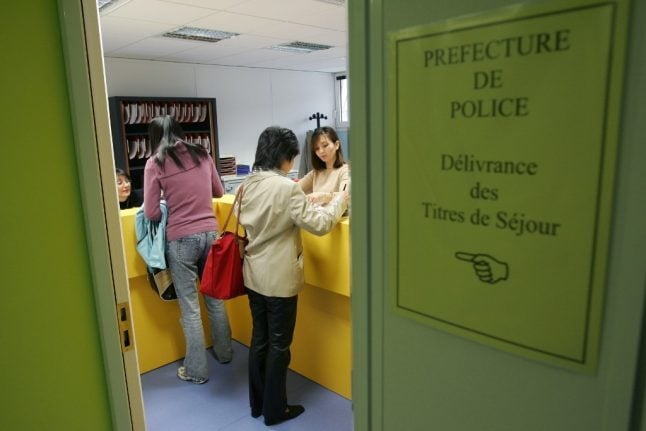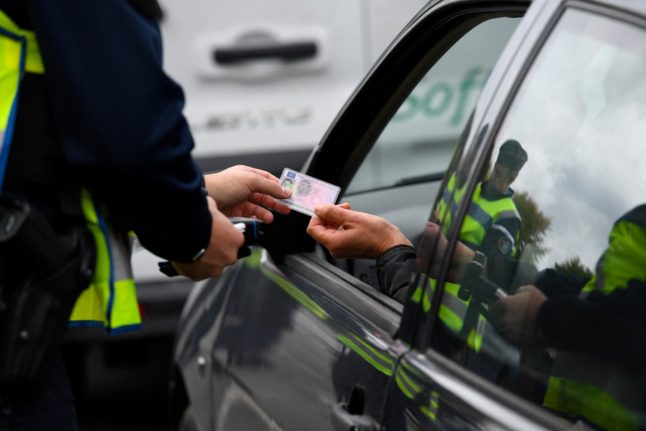When do I need it by?
Well the good news is that there's no rush. As the UK left with a deal, we now enter a transition period, which lasts until at least December 31st (and could be extended).
READ ALSO Brexit: What do I need to do before January 31st?

During this period most things stay the same for British citizens, including the fact that they can continue to live in France without the need for a residency permit (carte de séjour). They can also travel to and from France freely without a card.
Under the terms of the Withdrawal Agreement, British residents have until six months after the end of the transition period (so June 2021 on the current date) to apply for their carte de séjour.
The Withdrawal Agreement also makes provision for countries themselves to extend the deadline for up to a year if they have 'administrative difficulties'.
So if the French system becomes hopelessly bogged down with the sheer number of applications there is the option for French authorities themselves to extend the deadline.
The French authorities have a problem in that – because residency registration has not been compulsory before – nobody actually knows how many British people live here.
It is thought to be between 150,000 – 300,000 which could quite a burden on the issuing authorities.
What do I need?
The Withdrawal Agreement states that anyone who is legally resident – which is not quite the same thing as simply being in the country – at the end of the transition period is eligible to stay, but you still have to formally apply for residency, it is not automatic.
READ ALSO So you're living in France, but are you legally resident?
Justine Wallington from citizens' rights group Remain in France Together said: “There should be some attempt for a consistent approach to Withdrawal Agreement implementation even if each state can make its own plans. It’s at least potentially better than the no-deal legislation passed with massive differences between each country.”

Some things are still to be decided by French and British leaders. Photo: AFP
How do I apply?
There has been a lot of uncertainty about this, and various different pieces of advice given since 2016, but the French government has now announced that it will be running an online application system – similar to the no-deal Brexit online portal that was briefly active in October.
You can find out more here about how that is likely to work, but it will not go live until July 2021.
They key thing to note is that everyone will have to use the system – if you already have a carte de séjour permanent you simply need to swap it for the new card but everyone else has to make a new application.
The exception to this is people who already made their applications online on the no-deal portal back in October – theirs will be transferred to the new system.
What will I need to make my application?
Although most people cannot make their application just yet, you can get your paperwork together so that you are ready when the system opens.
The basic criteria under the Withdrawal Agreement is that you need to be legally resident in the country. This has always been the case for EU migrants, but because France has not until now had a registration process, many people have been unaware of this.
To be a legal resident you need to be either working, retired, self-employed, a student or otherwise economically inactive – or a family member of or in a durable relationship with someone who meets one of these conditions.
If you are retired or not working, you need to prove that you have sufficient resources not to be a burden on the French state, and this includes showing that you have health cover (for British pensioners being registered under the S1 scheme is sufficient for this).
READ ALSO What are the healthcare changes for British people in France after Brexit

If in doubt, hang on to any documentation you have about your French life. You may need it later. Photo: AFP
So the type of documentation you are likely to need includes proof of income (payslips, work contracts or tax returns) proof of health cover, proof of address (rental agreement, house ownership papers and utility bills) and proof of ID (passport).
The Withdrawal Agreement also states that the residency application process must be 'smooth, transparent and simple' and that application forms should be 'short, simple and user friendly'.
It's fair to say that this isn't the case with a lot of French bureaucracy, but the no-deal online application form was notably user friendly (and available in English) and required far less supporting documentation than the préfectures had been asking for, so hopefully the new online system will be the same.
Does it make a difference how long I've been here for?
Yes. If you've been legally resident in France for five years or more you can apply directly for permanent residency. Permanent residency also gives you the right to be away from France for up to five years without losing residency status.
If you've been in France less than five years you will need to apply for temporary residency, then apply for permanent residency once you reach the five-year mark. Your permanent residency will be granted on the same basis as the Withdrawal Agreement, even if you don't reach the five-year mark until several years after the end of the transition period. The five years residency must be continuous, and you cannot be out of the country for more than six months of the year (part from certain exceptional circumstances).
People who have been here for longer than five years and already have a permanent (10 year) residency card do not need to supply documentation proving their eligibility, but they do need to swap their current card for the new card, using the same system as everybody else.
So any paperwork that shows your arrival date in France – work contract, rental agreement, house purchase – is worth hanging on to.
What don't we know?
The above all only applies to people who are already resident in France by the end of the transition period. What the deal will be for people wanting to move after that is yet to be agreed.
READ ALSO Can British people still move to France after Brexit day



 Please whitelist us to continue reading.
Please whitelist us to continue reading.
Are you able to say, what happens to applications that were lodged with Prefectures, before the lockdown commenced. It is good in one sense, as the 3-month expiry rule cannot apply owing to the Prefecture holding the paperwork, but if they have all our documents, we will be unable to apply via the new on-line system.